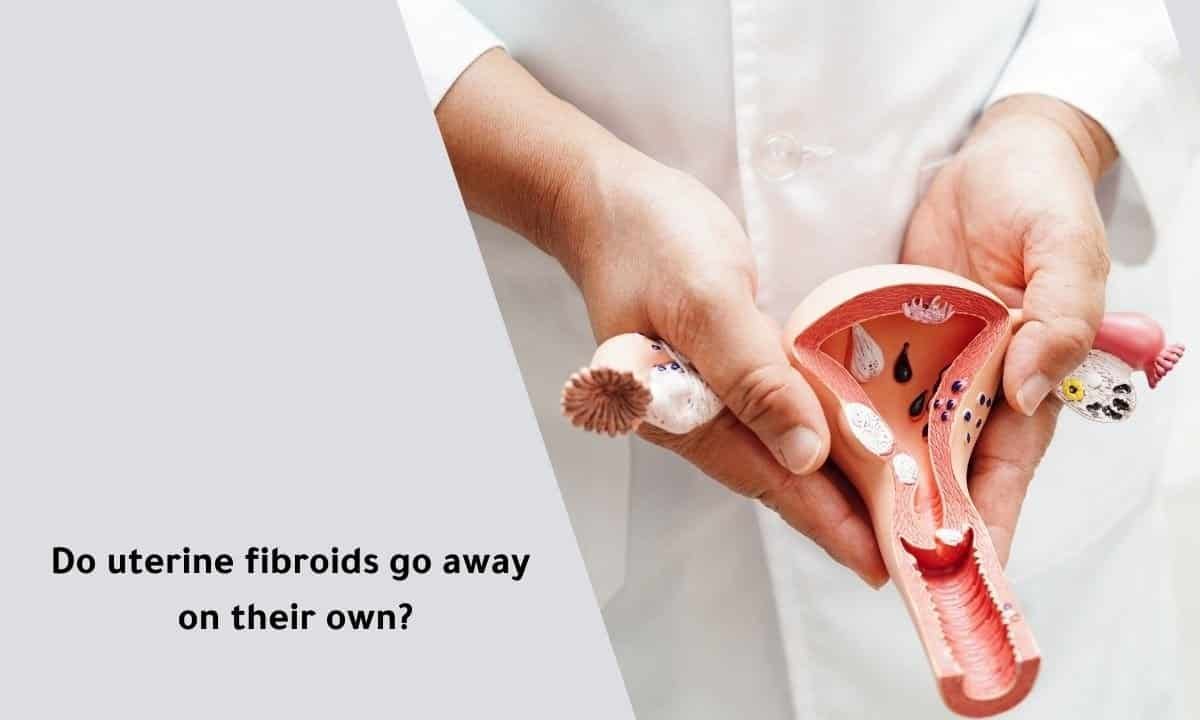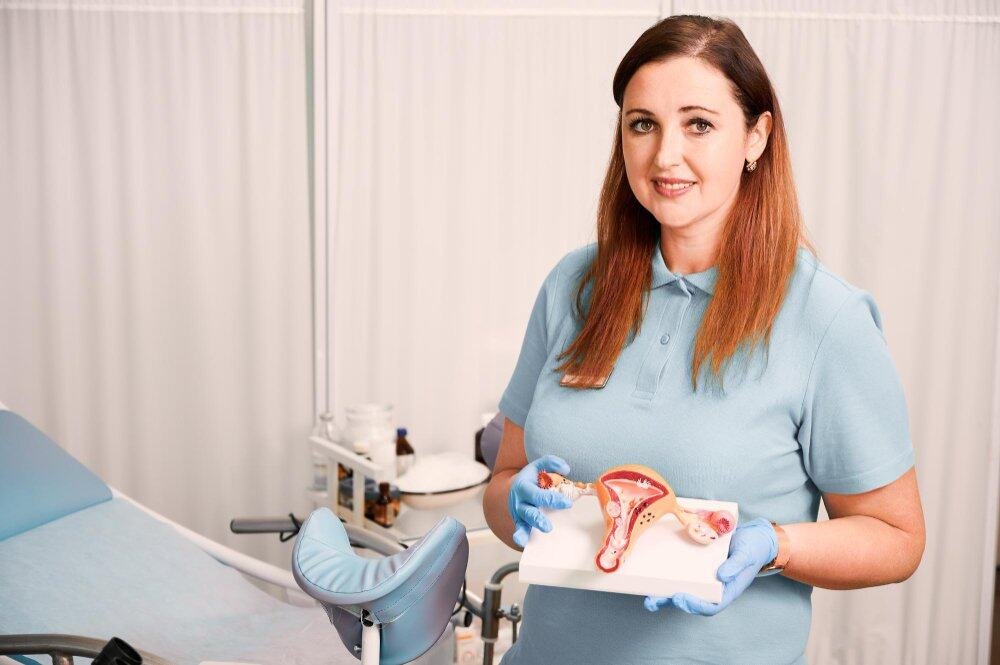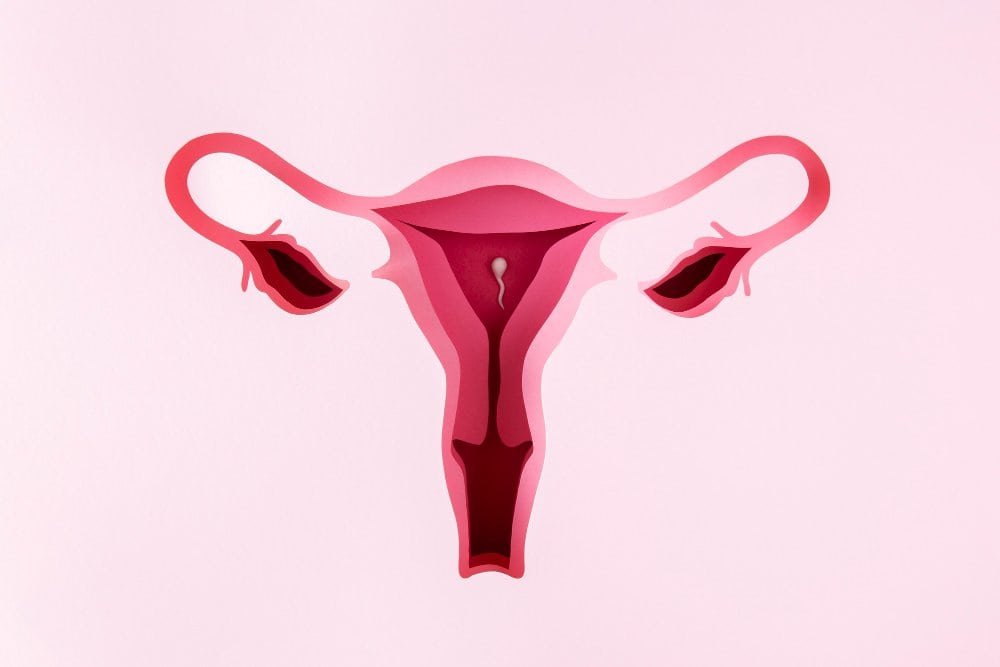Uterine fibroids, also called leiomyomas or myomas, are common, noncancerous growths that develop in the muscle tissue of the uterus. Many women who are diagnosed with fibroids wonder, “Do uterine fibroids go away on their own?” The answer to this question can vary depending on several factors, such as the woman’s age, hormone levels, and whether she seeks treatment. Let’s explore the details.

Do Uterine Fibroids Go Away on Their Own?
In many cases, fibroids tend to shrink or even disappear entirely over time. This is particularly true during menopause, a stage when estrogen and progesterone levels in a woman’s body naturally decrease. Since fibroids are highly dependent on hormones, the drop in estrogen production as women approach menopause often causes the fibroids to shrink. For postmenopausal women, fibroids rarely grow and may even resolve on their own without medical intervention.
However, this natural shrinking process takes time and may only happen for some. Younger women in their reproductive years, whose estrogen and progesterone levels are still high, may continue to experience fibroid growth.
Factors Affecting Fibroid Growth
Several factors can influence the size and growth of uterine fibroids. Estrogen and progesterone are the primary hormones that promote fibroid growth. For example, these hormone spurts during pregnancy can sometimes cause fibroids to proliferate. After pregnancy, fibroids may shrink again as hormone levels decrease. The blood supply to the fibroids can also affect their size; fibroids that receive an increased blood flow may grow larger.
Fibroids develop slowly, but some may remain asymptomatic or produce mild symptoms for years. On the other hand, fibroids can cause symptoms like heavy menstrual bleeding, pelvic pain, and pressure on the bladder or bowel. Depending on their location, fibroids may affect fertility and complicate pregnancy, making it essential to seek medical advice.
When Treatment is Necessary
While some fibroids may shrink and disappear independently, others may require treatment, mainly if they cause severe symptoms. Common treatments for fibroids include:
- Medications: Hormonal therapies, such as GnRH agonists, can help reduce fibroid size by lowering hormone levels. However, these treatments do not entirely remove fibroids.
- Uterine Fibroid Embolization (UFE): This minimally invasive procedure cuts off the blood supply to the fibroids, causing them to shrink and eventually disappear. Dr Samir Abdel Ghaffar, a pioneer in interventional radiology, is an expert in UFE, offering women an effective alternative to more invasive surgical options like hysterectomy or myomectomy.
- Surgical Removal: Surgery may be necessary for more extensive or painful fibroids that do not respond to other treatments. Myomectomy is the surgical removal of fibroids, while hysterectomy involves removing the uterus entirely.
What Happens if Fibroids Are Left Untreated?
If left untreated, fibroids can grow and cause significant discomfort or other health issues. Some women may experience acute pain, anaemia from heavy bleeding, and a decreased quality of life. In rare cases, large fibroids can lead to complications, such as a ruptured fibroid or the twisting of the fibroid tissue, which may require emergency surgery.
Consult with Dr. Samir Abdel Ghaffar for Expert Care
It’s important to remember that every woman’s experience with fibroids is unique. If you’re wondering whether your fibroids may go away on their own or if you need treatment, consulting with a skilled specialist like Dr. Samir Abdel Ghaffar is crucial. Dr. Ghaffar and his board-certified team offer personalized treatment plans to help reduce symptoms, improve health, and ensure the best outcomes for your fibroid care.
FAQS
What causes fibroids?
Fibroids develop from the muscle tissue of the uterus and are caused by a combination of genetic, hormonal, and environmental factors. Increased production of estrogen and progesterone, especially during reproductive years, promotes fibroid growth. Family history, hormonal imbalances, and factors like obesity and diet may also contribute to their formation.
Do fibroids move like a baby in the stomach?
Fibroids do not move like a baby in the stomach. However, large fibroids can cause a feeling of pressure or fullness in the abdomen, which may be mistaken for movement. These growths remain in place unless they undergo torsion, a rare condition where a fibroid twists on its stalk, causing acute pain.
How to check for fibroids at home?
While there is no definitive way to check for fibroids at home, you may notice symptoms like heavy menstrual bleeding, pelvic pain, or a swollen abdomen. If you experience these symptoms, you must consult a doctor for proper diagnosis through imaging tests like ultrasounds or MRI.
Which size of fibroid is dangerous?
Fibroids larger than 5 cm (about 2 inches) are considered more concerning, mainly if they cause significant symptoms such as severe pain, heavy bleeding, or pressure on nearby organs. Large fibroids can also increase the risk of complications during pregnancy. Always seek medical advice if you suspect fibroids are affecting your health.
Take Action Today
Although some fibroids may shrink naturally over time, others can continue to grow and cause significant health issues. Seeking professional advice from an expert like Dr. Samir Abdel Ghaffar ensures you can access the most advanced, minimally invasive treatments, like uterine fibroid embolization, to treat your fibroids effectively. Don’t wait until your symptoms worsen—take control of your health and contact Dr Ghaffar today.
Book a consultation with Dr Samir Abdel Ghaffar to learn how to manage fibroids and improve your quality of life.

 العربية
العربية 

